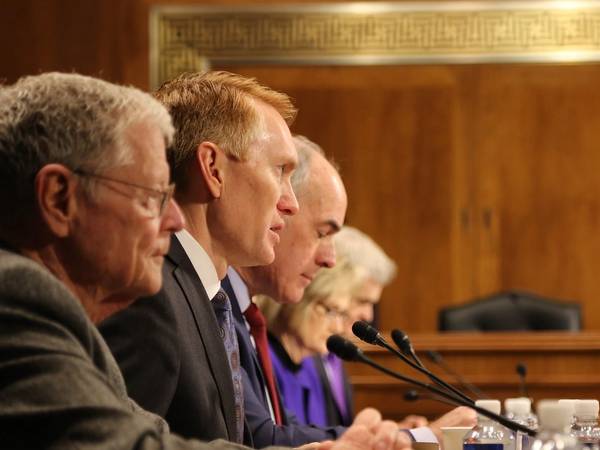The United States Senate Wednesday sent a strong message to the Biden administration opposing its current negotiating posture on the Iran nuclear deal.
The Senate passed a non-binding measure as an instruction to Senate representatives who will work with the House on a larger bill. It secured the votes of 16 Democrats for a total of 62 senators in favor.
Important Democrats such as Senate Majority Leader Chuck Schumer (D-NY) and Sens. Richard Blumenthal (D-CT), Cory Booker (D-NJ), Ben Cardin (D-MD), Chris Coons (D-DE), among others voted for the measure.
The measure introduced by Sen. James Lankford (R-OK) opposes entering into an agreement with Iran that only addresses its nuclear program, leaving out the issue of ballistic missiles and regional role, and demands that US sanctions on the Revolutionary Guard (IRGC) not be removed.
The House of Representative and the Senate are set to push forward with HR 4521, a long-stalled bill authorizing hundreds of billions of dollars to boost the country's ability to compete with Chinese technology, with Senate votes on motions addressing issues including energy policy and Iran sanctions.
This requires reconcilitation between the House resolution and Senate demands to reach at a final bill. Wednesday’s Senate votes on sevaral measures are instructions to its conferees when they meet to reconcile with the House.
The Lankford measure that was passed with a strong majority was one of these instructions and told the Senate conferees to insist on "provisions addressing the full range of Iran’s destablizing activities, including development of the means of delivery for [nuclear] weapons…support for terrorism, and evasion of sanctions…in the trade of petroleum products with the People’s Republic of China."
It also instructed that sanctions on the Islamic Revolution Guard Corps not be lifted and not to revoke its designation as a Foreign Terrorist Organization.
Earlier on Wednesday, the Senate voted 86-12 - with strong bipartisan support - for a similar "motion to instruct", sponsored by Republican Senator Ted Cruz, seeking a report on terrorism-related sanctions on Iran and saying such sanctions are necessary to limit cooperation between China and Iran.
If they become law, the Lankford and Cruz provisions could complicate delicate negotiations on the Iran nuclear deal, although western officials have largely lost hope that the pact can be resurrected, four years after former Republican President Donald Trump abandoned it in 2018.
